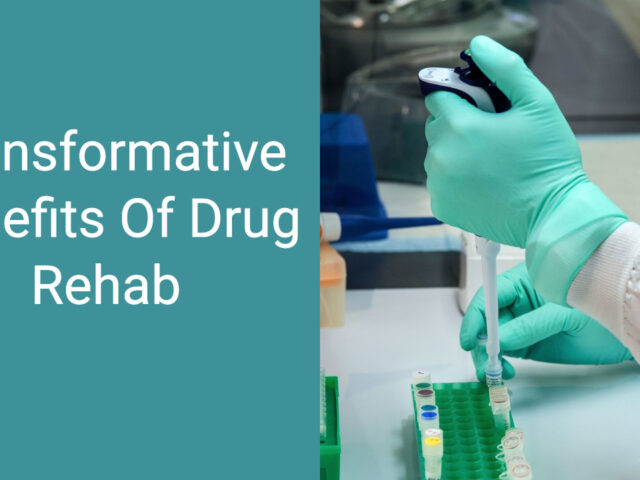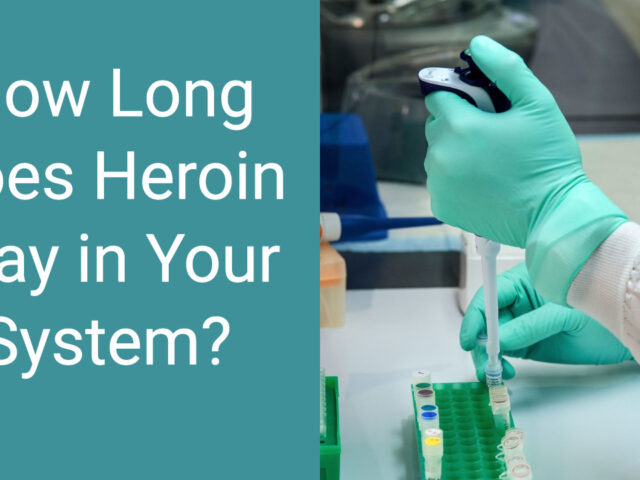
Equine Therapy for Substance Use Disorder Treatment
Equine therapy has been around for centuries and is a helpful technique for combating physical and mental challenges, including substance use disorder. Explore what equine therapy is and whether it is right for your treatment and recovery journey.
How Is Equine Therapy Used?
While equine therapy does not replace medically monitored treatment facilities, it can help someone on the road to recovery. You can also use it to prevent future relapses by learning the necessary cognitive functions for resisting triggers and overcoming underlying challenges contributing to substance use. This therapy can also help treat side effects that are a direct result of substance use disorder.
You add equine therapy to your current therapeutic or rehabilitation programs to complement what you are already learning and achieving.
Some of the issues that equine therapy can help you address include:1
- Substance use disorder and addiction
- Behavioral issues
- Depression
- Anxiety
- Grief
- Post-traumatic stress disorder (PTSD)
- Relationship problems
- Cerebral palsy
- Inattention and hyperactivity (ADHD)
- Autism
- Asperger’s
- Learning difficulties
- Eating and food issues
- Bipolar
Equine Therapy Benefits
Through equine therapy, you learn a variety of skills and can see several benefits, including:
- Trust building
- Communication skills
- Avoiding isolation and building social skills
- Learning impulse control
- Learning how to set and respect boundaries
These benefits help you in your treatment as well as preventing a relapse.2
How Equine Therapy Works
Horses are intelligent and responsive animals with greater emotional maturity than many other animals, making them ideal therapy partners for providing a safe and healing space for patients.
Here are four ways that equine therapy works to improve your quality of life and help you overcome physical and mental barriers.3
Horses and Emotional Healing
Horses act like human mirrors as they reflect the emotions of the person interacting with them. This connection helps patients build relationships with their equine partners and become self-aware of the emotions they are experiencing.
Because horses have a greater emotional connection to humans, they can respond to non-verbal cues. However, their gentleness makes them a safe place to work through emotional challenges without judgment.
As patients interact with horses, these interactions reflect relationships in the patient’s real life. You can make yourself vulnerable and work through challenges in real-life relationships and experiences with your horse. This freeing experience helps you develop emotional maturity to address those same challenges with the people in your life.
Horses and Confidence Building
Horses are powerful animals. While therapies are available with smaller animals like cats and dogs, they don’t offer the same experience as working with horses. Because of the size and strength of horses, working with them helps you build confidence as a person and in your life.
Learning to work with the horse and control them reflects challenges in your life. For example, the horse can represent your addiction, depression, or fears holding you back. As you gain control over the horse, you also learn to control those other areas in your life to regain power and confidence.
Horses and Skill Development
Equine therapy teaches you skills like horse riding, caring for horses, and performing other equine-related activities. These tasks teach you self-discipline and responsibility. They also instill a sense of purpose and control in your life.
As you learn equine-related skills, you also build skills that will help you manage other areas of your life that will aid you on your road to recovery.
Horses and Physical Therapy
Equine therapy can also aid physical recovery or control tics related to substance use or underlying conditions. For example, you can use equine therapy for:
- Motor control issues
- Balance issues
- Cerebral palsy
- Posture correction
- Coordination
Where to Find Equine Therapy
Equine therapy is available through some residential treatment centers and is part of your recovery process. You can also sign up for programs through your psychotherapist.4
Contact your nearest center or talk with your therapist for equine therapy programs near you.
4 Types of Equine Therapy
Equine therapy is a broad term for any therapy that involves horses. Some entry-level therapeutic programs only offer a small number of equine interactions, such as petting horses, grooming them, feeding them, and interacting with them alongside a trained professional.
Other programs let you perform more involved tasks like haltering horses and leading the horses. While horse riding is part of many programs, it is not required to participate in equine therapy.
Here are four of the most popular equine therapy techniques:5
1. Therapeutic Horseback Riding
This form of therapy allows you to ride the horses and learn control. It benefits your physical health, improves your coordination, and helps you develop confidence. You also learn teamwork and control, which can aid in overcoming substance use disorder.
2. Hippotherapy
Hippotherapy is assisted horseback riding. Instead of being in complete control of the horse, a trained professional leads the horse as you ride. You work alongside an occupational therapist or physiotherapist. The therapist controls the horse’s behavior to challenge you to step outside your comfort zones and try something new in a safe and guided environment.
3. Equine-Assisted Learning
This horse-assisted therapy focuses on the relationship you build with the horse. As a result, you build greater self-awareness and focus on concentration to help your personal development.
4. Equine-Assisted Psychotherapy
Instead of focusing on your physical well-being, equine-assisted psychotherapy centers around your mental health. You might perform similar tasks as the previous programs, like riding and vaulting. However, your main exercises are centered around interacting with the horse through grooming, feeding, and harnessing the horse.
You work alongside a mental health professional who guides the exercises and helps you learn about yourself and open up about challenges in your life. These interactions provide the insights your therapist needs to give more personalized and effective treatment.
Who Is Equine Therapy For?
Equine therapy can benefit anyone with cognitive or physical challenges. However, it is especially helpful for those who currently struggle with substance use disorders or have in the past and want to help promote long-term recovery.
Before deciding if equine therapy is right for you, speak with a licensed therapist to discuss your options.
Signs of Substance Use Disorder
Are you unsure if you have a substance use disorder? Use this list of signs and symptoms. If you have more than two of the following symptoms, please seek out medical help:6
- Using a larger amount of a substance or for longer than intended
- Not able to cut back on your usage
- Spending a large amount of time obtaining or recovering from a substance
- Unable to keep other commitments because of using a substance
- Continuing to use a substance despite problems occurring as a direct result of your usage
- Giving up activities because of using a substance
- Using a substance even when it puts you in danger
- Using a substance even though you see worsening physical or psychological issues
- Increased tolerance to the substance
- Experiencing withdrawal symptoms
History of Equine Therapy
Equine therapy is not a new concept. It dates back to the ancient Greeks.7 They used the term hippotherapy. This term comes from the prefix hippo- which means “horse.” They wrote about therapeutic riding and its benefits for physical and mental health concerns.
The practice was more widely recognized in the mid-1900s when psychotherapists started using riding to treat several health and mental issues. Since then, it has become a popular therapy for many conditions beyond just physical challenges.
Equine Therapy Risks
Because the horses you interact with during equine therapy are highly trained, there are minimal risks when participating in equine therapy. However, it still has a few potential risks you should be aware of when deciding if it is right for you.
Because horses are larger animals, there is a risk of falls or other injuries related to riding and interacting with heavy animals. However, since trained professionals are present, they can prevent most injuries and put precautions in place to ensure you have a safe and rewarding session.
Some forms of equine therapy might not be right for some patients with certain physical limitations, like spina bifida or scoliosis. You might risk worsening physical challenges by riding horses, so be sure to talk with your therapist before starting therapy.
If you suffer from allergies, including hay or animal allergies, being around horses can worsen your symptoms. While you might be able to manage your allergies with medication, speak with your trainer about your allergies before using equine therapy in your treatment.
Is Equine Therapy Right for You?
If you are interested in exploring whether equine therapy for addiction is right for you, then reach out to one of our specialists to discuss your options.
Call a specialist today to talk about your therapy options.
Resources
- GoodTherapy. (2017, November 12). Equine-Assisted Therapy. https://www.goodtherapy.org/learn-about-therapy/types/equine-assisted-therapy
- CBH. (2022, March 28). How To Write A Relapse Prevention Plan. https://cabehavioral.com/relapse-prevention-plan/
- Jodi Clarke, MA, LPC/MHSP. (2021, October 14). Using Equine therapy as Mental Health Treatment. VerywellMind. https://www.verywellmind.com/equine-therapy-mental-health-treatment-4177932
- CBH. (2022, May 11). Palm Springs’ Best Residential Treatment Center For You. https://cabehavioral.com/palm-springs-best-residential-treatment-center-for-your-recovery/
- Sharon White-Lewis. (2020, January 7). Equine-Assisted Therapies Using Horses As Healers: A Concept Analysis. NIH. https://www.ncbi.nlm.nih.gov/pmc/articles/PMC6917924/
- A Thomas McLellan, PhD. (2017). Substance Misuse and Substance Use Disorders: Why do they Matter in Healthcare? https://www.ncbi.nlm.nih.gov/pmc/articles/PMC5525418/
- American Hippotherapy Association, Inc. (n.d.) The History of Hippotherapy and the Growth of AHA, Inc. https://www.americanhippotherapyassociation.org/our-history











